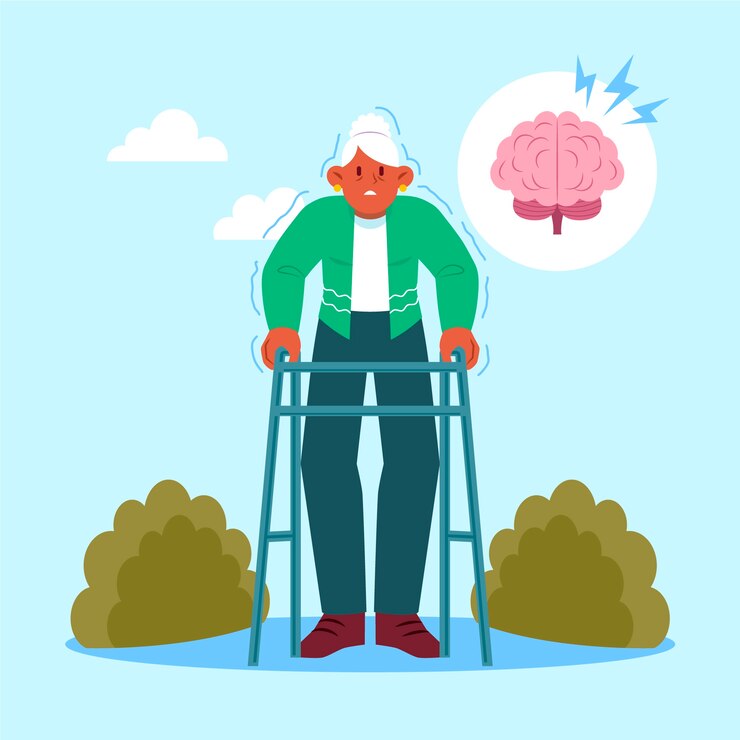
Understanding the Causes and Risk Factors of Parkinson’s Disease
Understanding the Causes and Risk Factors of Parkinson’s Disease
Parkinson’s disease is a complex condition, and while its exact cause remains unclear, several factors may increase the risk. Here’s a simple breakdown of the causes and risk factors for Parkinson’s disease:
1. Genetics
Parkinson’s disease is usually not inherited, but certain genetic mutations can raise the risk. If someone has a family history of the disease, their risk may be slightly higher.
However, most cases occur in people without a family history, suggesting that genetics alone may not be the sole factor.
2. Environmental Factors
Exposure to toxins like pesticides, herbicides, and heavy metals is linked to an increased risk of Parkinson’s disease. People living in rural areas or working with pesticides might face higher risks. Air pollution and water contaminants have also been studied as potential environmental contributors to Parkinson’s.
3. Age
The risk of Parkinson’s disease rises with age, especially after 60. However, younger individuals can also develop it, although this is less common. Age-related wear and tear on brain cells might contribute to the condition’s onset, but it’s not the only factor.
4. Gender
Men are more likely to develop Parkinson’s disease than women, though the reason for this difference is still unclear. Some researchers believe hormonal differences may play a role, but further studies are needed to confirm this theory.
5. Head Trauma
Research suggests that head injuries, especially repeated concussions, may increase the risk of developing Parkinson’s disease later in life. Athletes in contact sports, for example, may be at a higher risk due to repeated trauma to the head.
Conclusion
While these factors may contribute to Parkinson’s disease, they don’t guarantee someone will develop it. Also, not having any known risk factors doesn’t mean a person won’t develop the condition. It’s important to be proactive in health management, especially as more research continues to uncover new insights into Parkinson’s causes and prevention strategies.
By understanding the potential causes and risk factors, individuals can make informed health decisions and take steps to reduce their risk where possible. Regular check-ups and lifestyle modifications, such as a balanced diet and physical activity, can help manage overall health and well-being.
To seek medical advice, always consult a Doctor.
Here are our recommended experts. Click here
To read more on Neurological Disorders. Click Here

